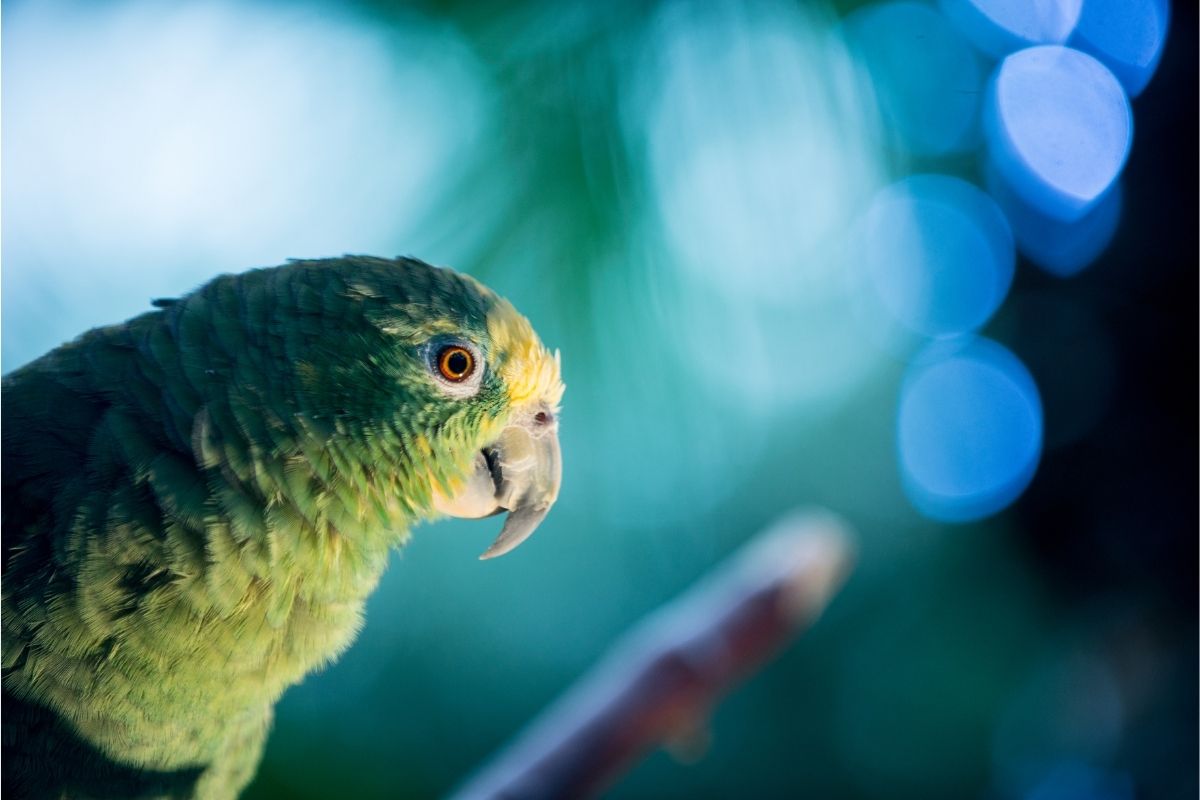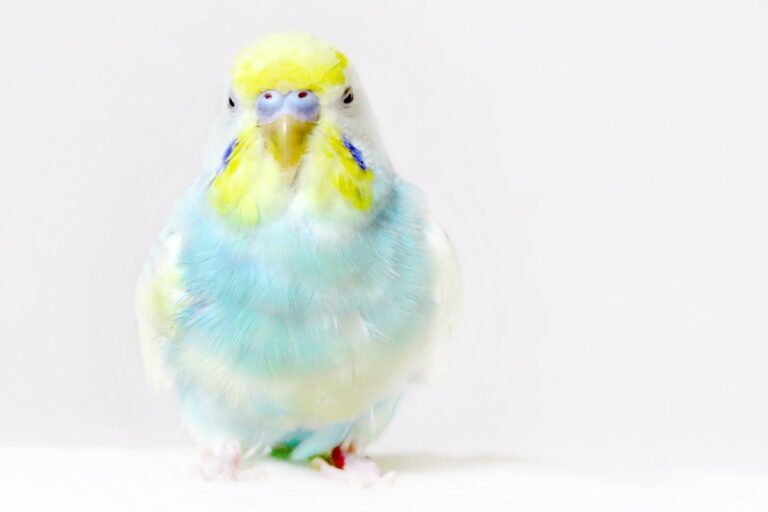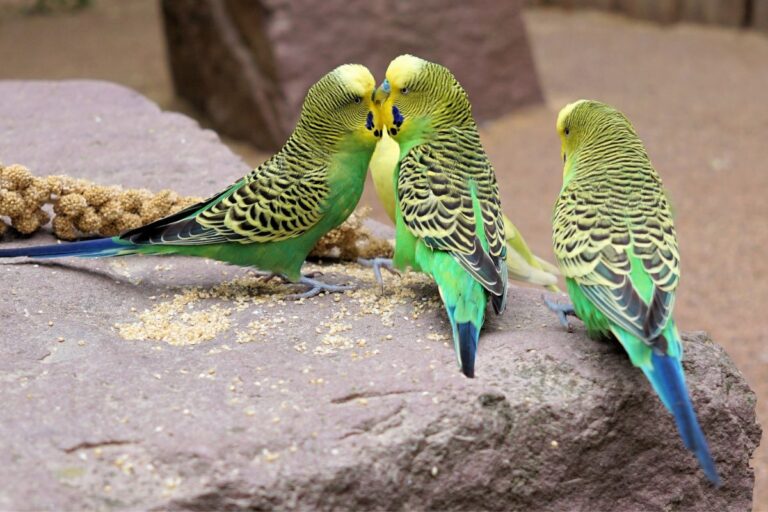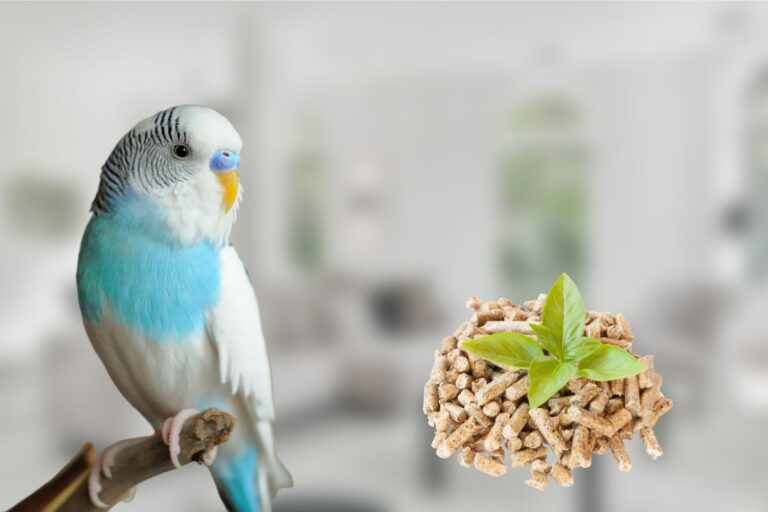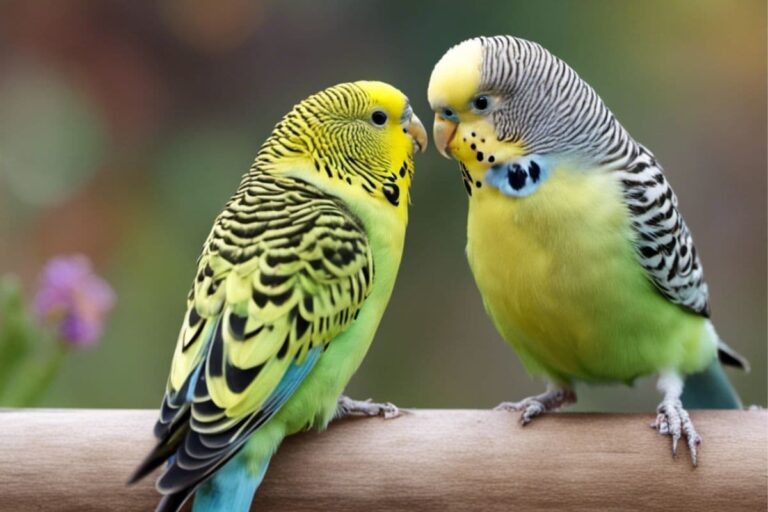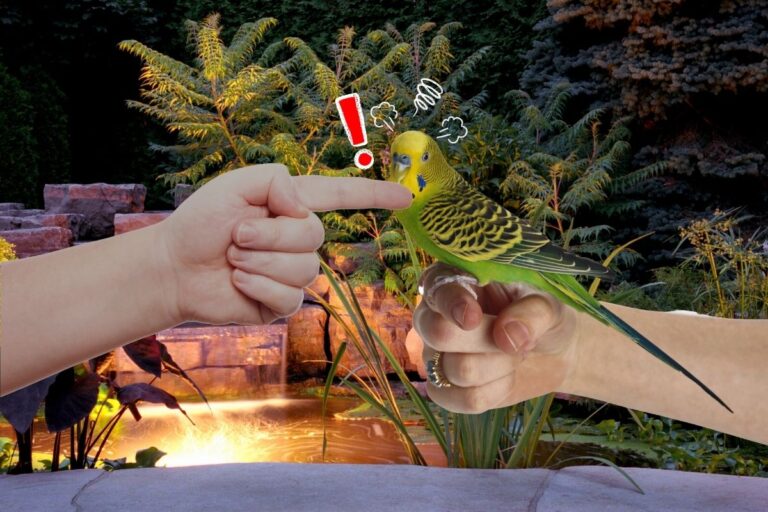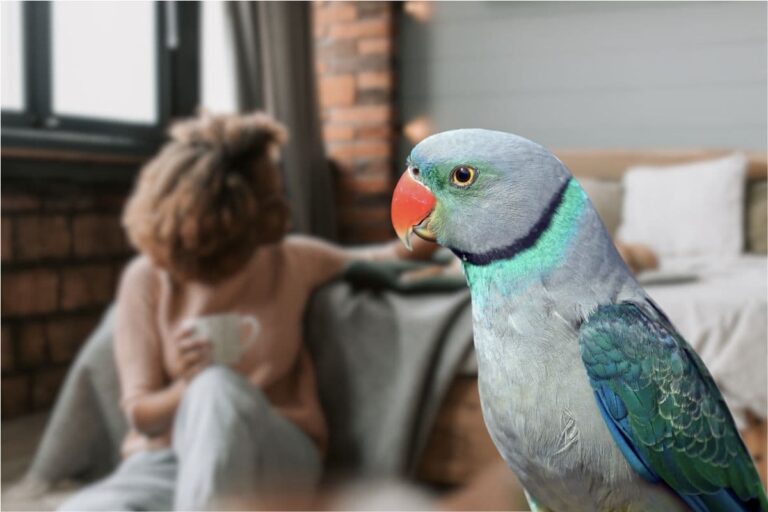Can Parakeets Kill Each Other
Disclosure: The opinions expressed in this post are my own. This post may also contain affiliate links, which means that I will receive a commission if you decide to purchase through my links, at no additional cost to you. As an Amazon Associate, I earn from qualifying purchases.
Parakeets are often kept as pets due to their friendly nature. They love to play around and interact with their owners and with each other. However, there are times when parakeets get into fights with each other.
If you own a parakeet, then you should know that these birds may fight each other. In fact, parakeets are known to kill each other in extreme cases. If you want to prevent your parakeet from killing another bird, then you should continue reading on.
Can Parakeets Kill Each Other? Is This Normal?
Though uncommon, it is very possible for parakeets to attack and even kill one of their fellow flock mates. They use their beaks to inflict damage on each other. The beak is used to grab and hold onto another bird, to inflict pain on the victim bird. They attack vulnerable areas such as the face, wings and legs, which could cause serious injuries and bleeding which could lead to death, especially if the owner is not present to stop the fight or render aid.
There could be many reasons for this behaviour, mainly out of aggression or protecting themselves. They also try to protect themselves against possible predators such as cats or dogs. However, such behaviour is not considered normal and only tends to occur on rare occasions.
This type of behaviour is also seen more often when older parakeets are introduced to another parakeet.
However, if two parakeets have been raised together since birth, they will be less likely to harm each other. These birds usually live peacefully together until something happens, putting them in the wrong state of mind.
Reasons Why a Parakeet Might Fight Another / Each Other
Parakeets are social animals who live in groups. They usually form pairs or small family units. Sometimes these birds often fight with each other because of many reasons, such as establishing dominance. Here are some common reasons why parakeets fight one another.
Hormones
Parakeets may exhibit hormonal behaviour. This is quite typical and nothing to worry about. You may observe a sudden change in your parakeet’s behaviour due to increased estrogen and testosterone levels. A common behavioural trait caused by this is aggression, and a parakeet may release the anger on another member of its flock. Hormone levels will eventually tone down, and your parakeet should get back to its usual self again.
Disease
Parakeets have the ability to detect sickness in another parakeet. Sometimes if a parakeet feels that the sick parakeet is a threat to the rest of the flock, it may take matters into its own hands by killing that particular parakeet. This is in hopes to prevent the disease from spreading and possibly affecting other members of the flock.
Protecting Eggs & Hatchlings
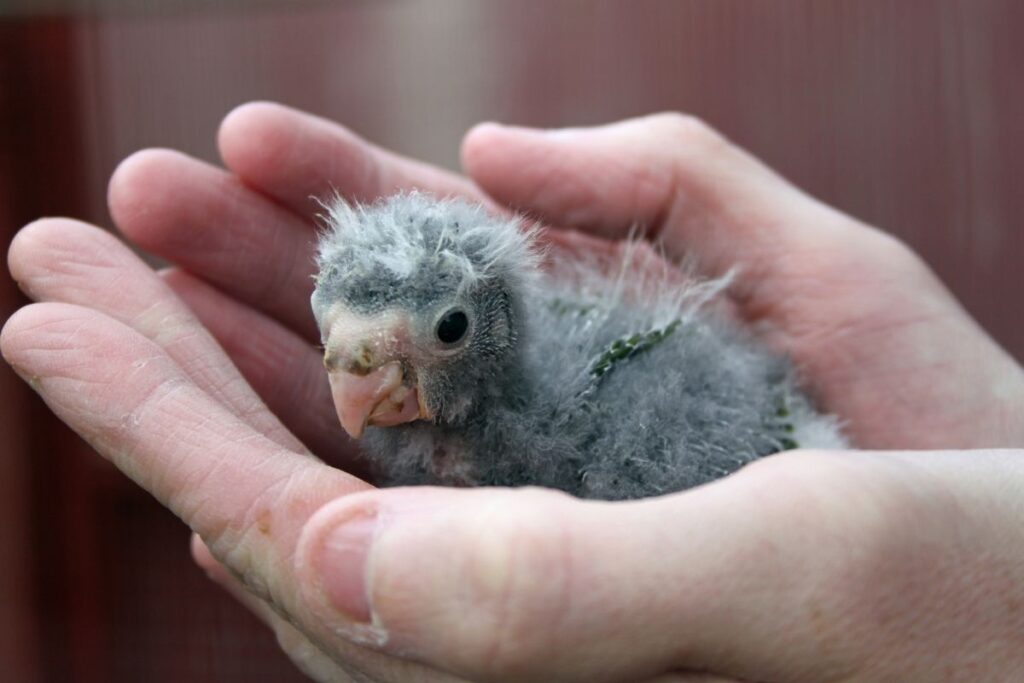
A mother parakeet is known to be very protective towards her eggs and babies. She will relentlessly attack whoever goes near her eggs or whoever she feels is a threat to them. She may even attack the father for neglecting the care of their babies.
Territorial / Establishing Dominance
The most common reason why they might fight is because of territoriality. When a new parakeet enters an established group, it tries to establish its territory. The first thing that it does is to start fighting with an intruder who comes near him. This territorial behaviour also applies to fighting over snacks and toys. Parakeets usually exhibit this kind of behaviour to establish their dominance over a territory.
Competition Over Food or Toys
Another reason why parakeets can fight each other is because of food competition. This is partly an instinctive trait. In the wild, parakeets need to source their food themselves. Failure to do so may lead to hunger and starvation. Therefore, during feeding time, they could be displaying some defensive behaviour towards other parakeets. This behaviour could sometimes be similarly translated towards toys and space.
Jealousy
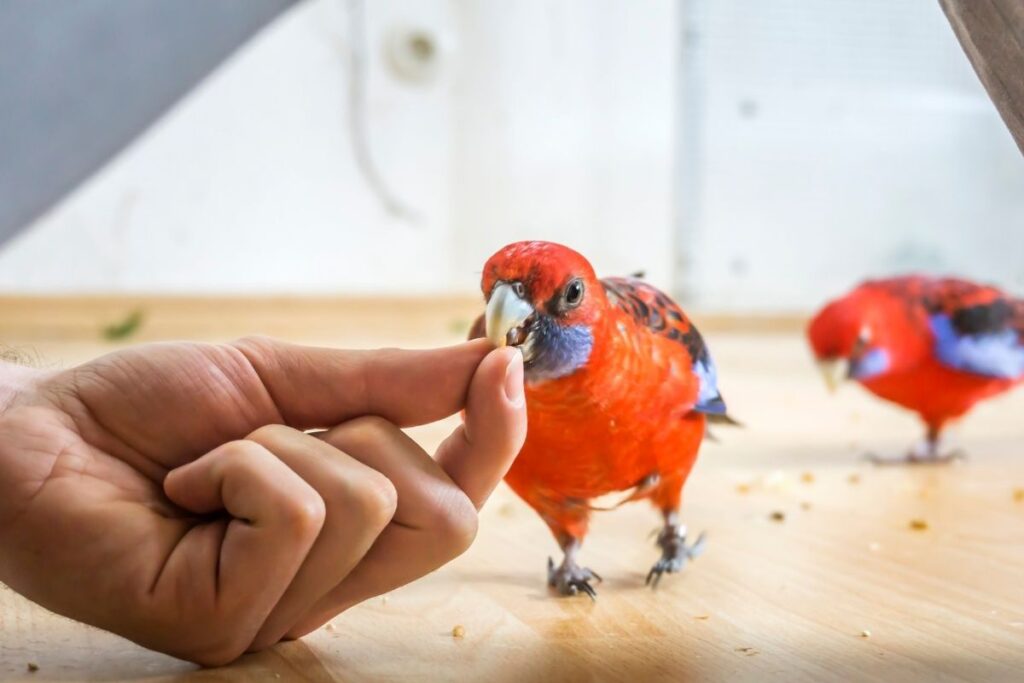
Sometimes parakeets simply fight because of jealousy. There could be many reasons for this, such as the owner giving more attention to a particular parakeet over another. Just like us, parakeets have feelings too. They appreciate companionship, and they want to be loved. If you notice your parakeet showing signs of jealousy, be sure to make some changes before things go out of hand.
Stress
Lots of things could affect your parakeet’s well-being, which could lead to stress and hostility towards other birds. You can help keep your parakeet happy by providing a good environment and giving them time to exercise and socialize. If your parakeet is not cared for well, it is more likely to experience outbursts of stress and anger.
Are Female or Male Parakeets More Aggressive?
Based on the experiences of professionals and parakeet communities, female parakeets tend to be more aggressive than male parakeets. However, there are exceptions where males are more dominant than females budgies. It all depends on many other factors, such as age and size differences and how the parakeets were raised.
Female parakeets are known to be even more aggressive towards other females. Conflicts will happen more frequently and intensely. Therefore, it is generally not a good idea to introduce a female parakeet as a companion to another female parakeet if you do not have experience in doing so.
Read this article to learn about ways to find out if your parakeet is a male or female.
How to Stop a Parakeet Fight
It is important to note that if you witness a parakeet fighting with another parakeet, you should intervene right away and not let the situation escalate further. Try to separate both parakeets by putting them in different cages or temporarily attaching them to harnesses so that they do not come into contact with each other for the time being.
Don’t Mistake Them For Just Playing
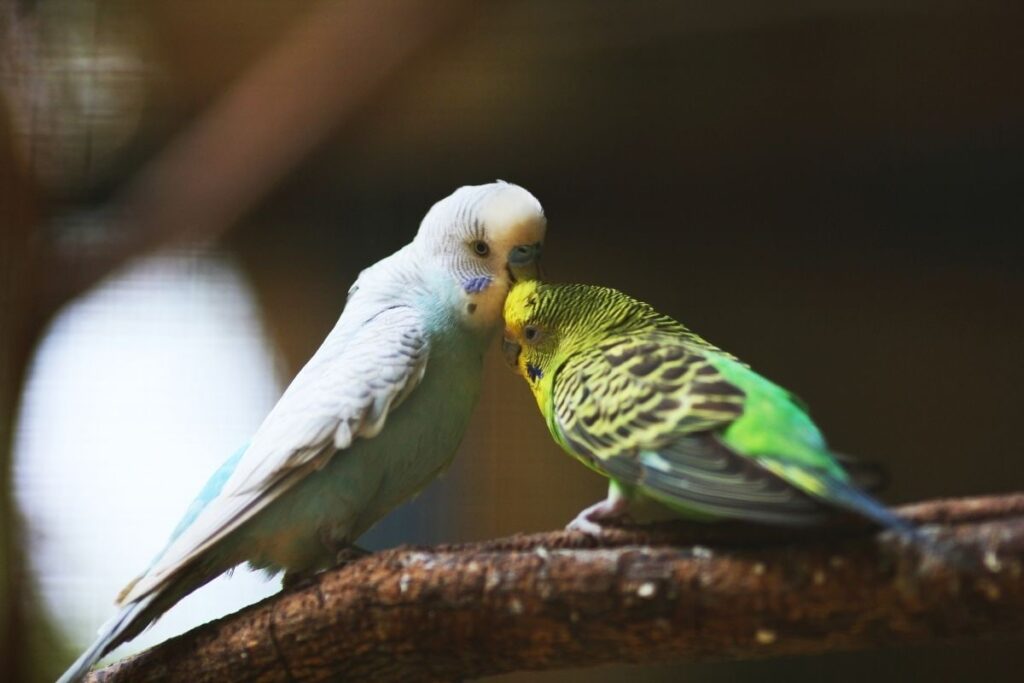
If you are new to keeping parakeets, you may mistake their playfulness for fights. Parakeets love to preen each other and use their beaks to touch each other as a sign of affection. However, if you notice that a parakeet is constantly fleeing from another, there could be a sign of hostility there. Use your better judgement here.
Do Not Punish Your Parakeet
Punishing should not be a way to deal with your bird’s aggression. Instead, try to understand what caused its behaviour and then find ways to prevent it from happening again. You can use positive reinforcement instead of punishment when dealing with your parakeet.
So if you see your parakeet attacking another parakeet, be sure to handle the situation with care and a good temper instead of introducing more negativity into the already tense situation.
How to Prevent a Parakeet from Attacking Another
As parakeet owners, we may be contributing to their tendency to fight without knowing it. Here are some tips for you on providing the ideal environment for your parakeets so that they are less inclined to fight with each other.
Larger Cage
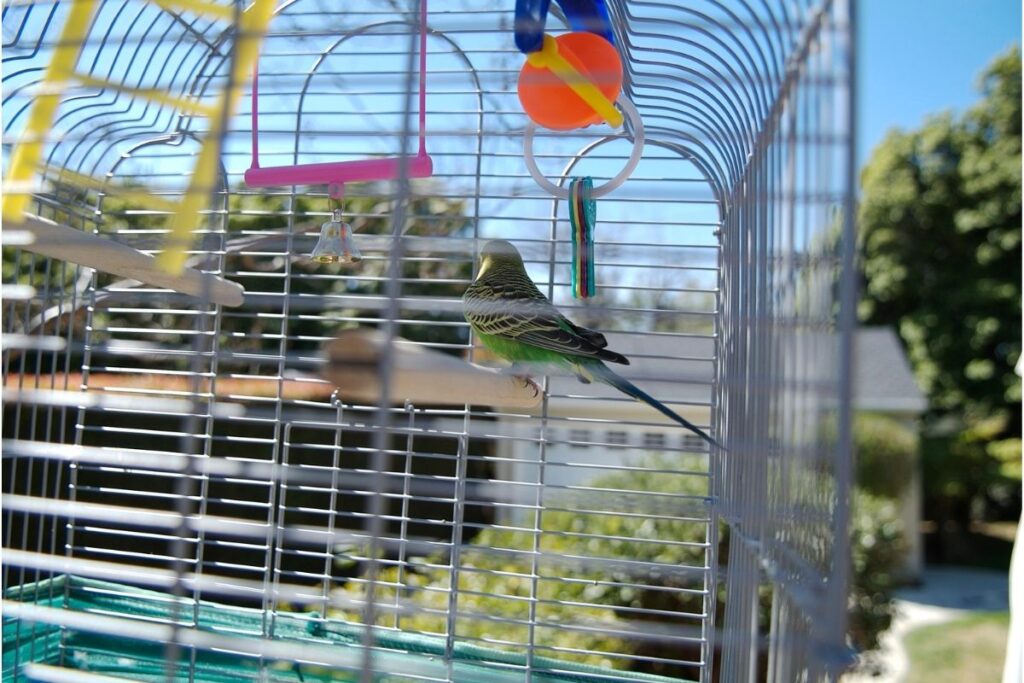
Territorial disputes boil down to space (or the lack thereof). Providing your parakeets with a larger cage makes it harder to intrude into each other’s space simply because there’s more of it. This also means that your parakeets won’t feel threatened by one another since they don’t need to worry about encroaching upon each others’ territory.
Separate Cage
If the fighting goes out of hand despite using a larger cage, you will need to place them in separate cages so that they do not harm each other physically. Slowly reintroduce them back together in the same cage only while under your supervision.
Observe Closely When Introducing a Companion Parakeet
When it comes to introducing a new companion to your parakeet, never leave anything to fate. This has to be done slowly and with care. The most significant thing to take note is signs of hostility from any of them. Remember that parakeets are known to be territorial, so you should always keep a lookout for the safety of your feathered friends for at least the first few days.
Clean Up & Rearrange the Cage When Introducing a New Member
Your existing parakeets may already have their favourite spot and have firmly established their dominance over a territory. By not only cleaning up but rearranging the cage, you are doing your best to reset the environment so that when a new member comes in, it does not feel like it is intruding into anyone’s territory. So go ahead and move about the perches, toys and feeding bowls to change up the surroundings before you introduce a new member to the flock.
Introducing Companions While They Are Still Young
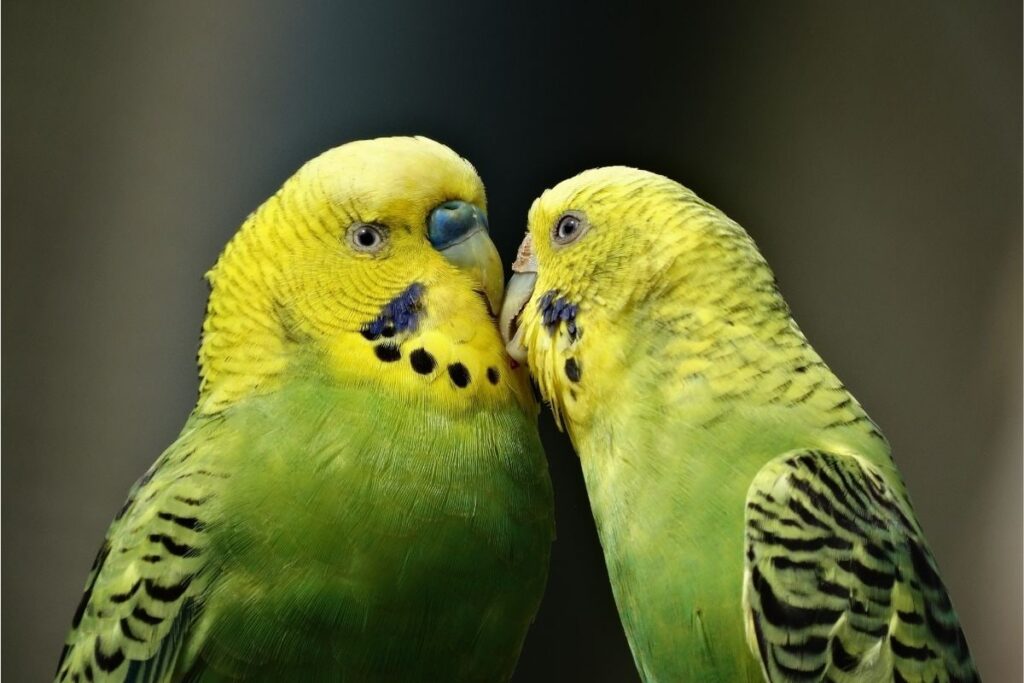
The older your parakeets get, the more territorial they become. It is easier to change their behaviours while they are still young and impressionable. This does not mean that you can’t introduce new members to an older parakeet. But if you have any ideas of adding a new member, consider doing that at an earlier stage as it is much easier for you.
Keeping Two Male Companions
Female parakeets are known to be more aggressive than their male counterparts. If you are less experienced in owning parakeets, you may start by keeping two male companions. Male-male pairs are known to get along the easiest of all the combinations, followed by male-female pairs. You should only keep females together if you are experienced and can tell the signs of aggression and hostility towards one another.
Provide Sufficient Food & Water
Parakeets require high-quality food and water to stay healthy. Make sure that your parakeets get enough food daily to not feel the need to fight over it. Also, make sure that they always have access to clean and fresh water.
Give Them Ample Exercise Time
Your parakeets need plenty of physical activity to remain fit and active. This helps with both their physical and mental well-being. By keeping them active and engaged, you reduce their tendency to take out any aggression on each other.
Bring Your Parakeet to a Vet When Showing Signs of Illness
It is crucial to bring your parakeet to a vet whenever there are any health issues or behavioural problems. A veterinarian can help identify what might be causing these symptoms and provide treatment options.
You also avoid putting the sick parakeet to further risks from other flock members trying to harm it or likewise risking the rest of the flock becoming ill.
Having Difficulties?
If you have trouble controlling your parakeets’ behaviour, you will probably benefit from taking some time away from them. Take them somewhere quiet where they won’t bother others around them. Give them lots of space to roam around and explore without being disturbed. Try giving them something interesting to chew on, such as wood chips, dried leaves or even catnip. Once they calm down, try reintroducing them back to the group.
Takeaway
If you’re looking to add a new friend to your family, then parakeets are worth considering. However, just because they are small doesn’t mean they don’t come with serious responsibilities. Take time to learn everything you can about this unique bird species, including handling them properly. With proper training and guidance, you’ll soon find yourself enjoying hours upon hours spent watching your little buddies play around and interact with each other.



